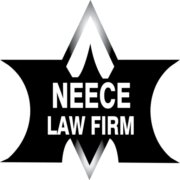Best Arrests & Searches Lawyers in North Carolina
Share your needs with us, get contacted by law firms.
Free. Takes 2 min.
Or refine your search by selecting a city:
List of the best lawyers in North Carolina, United States
About Arrests & Searches Law in North Carolina, United States
Arrests and searches are critical components of the criminal justice process in North Carolina. Law enforcement officers have specific powers to detain, arrest, and search individuals, but these powers are not unlimited. Both the United States Constitution and the North Carolina Constitution provide protections to citizens regarding when and how the government can intrude on their privacy or deprive them of liberty. Laws governing arrests and searches are designed to balance crime prevention and individual rights. Understanding these laws helps North Carolinians protect their legal rights and know what to expect if they encounter law enforcement.
Why You May Need a Lawyer
Being arrested or searched by law enforcement can be a confusing and stressful experience. You may need a lawyer in several situations, including:
- If you have been arrested or detained by police
- If your home, car, or belongings have been searched
- If you believe your rights were violated during an arrest or search
- If you are facing criminal charges after an arrest
- If you need advice on how to respond to law enforcement questioning
- If you want to know whether evidence obtained in your case can be challenged
- If you are the subject of a search warrant or subpoena
A qualified attorney can explain your rights, help you navigate the legal system, and advocate for your best interests through every stage of the process.
Local Laws Overview
North Carolina’s laws regarding arrests and searches are primarily based on federal constitutional protections, but there are specific state statutes and court decisions that interpret these protections locally.
- Probable Cause and Arrests: In North Carolina, law enforcement must generally have probable cause to make an arrest. This means they must have reasonable grounds to believe a crime has been or is being committed by the person they intend to arrest.
- Search Warrants: Most searches require a warrant issued by a judge. The warrant must be supported by probable cause and describe the place to be searched and the items to be seized. There are exceptions for certain circumstances such as consent searches, searches incident to lawful arrest, plain view doctrine, and exigent circumstances.
- Stop and Frisk: Police can briefly stop and question a person if they have reasonable suspicion that criminal activity is afoot. They may also frisk the person for weapons if they have reason to believe the person is armed and dangerous, under the famous Terry v. Ohio standard.
- Miranda Rights: Upon arrest and prior to questioning, individuals must be informed of their Miranda rights, including the right to remain silent and the right to an attorney.
- Suppression of Evidence: If an arrest or search is found to violate state or federal protections, the resulting evidence may be excluded from use in court under the "exclusionary rule."
North Carolina statutes also provide specific procedures and rights for individuals during these processes. A lawyer familiar with local laws can clarify how these apply to your situation.
Frequently Asked Questions
What does it mean to be arrested in North Carolina?
An arrest occurs when a law enforcement officer takes a person into custody, typically because they believe the person has committed a crime. This may involve physical restraint or simply a show of authority where the individual is not free to leave.
Can police search me or my property without a warrant?
While most searches require a warrant, there are many exceptions. Police can search without a warrant if you consent, if they see evidence in plain view, if they are arresting you, or under certain emergency situations. Each case depends on its facts.
What are my rights if I am stopped by police?
You have the right to remain silent and the right to refuse consent to a search. You can ask if you are free to leave. If you are detained or arrested, you have the right to legal representation.
What should I do if I am arrested?
Stay calm, do not resist, and do not answer questions without a lawyer present. Inform the officers that you wish to remain silent and would like an attorney.
What can I be searched for during an arrest?
If you are lawfully arrested, police can search your person and the area within your immediate control for weapons or evidence of a crime.
Can police search my car during a traffic stop?
Police can search your car if they have probable cause to believe it contains evidence of a crime, if you consent to the search, or if evidence is in plain view. There are also other limited exceptions depending on the circumstances.
When is a search warrant required?
A search warrant is generally required to search your home or other private areas unless an exception applies, such as consent, exigent circumstances, or evidence in plain view.
What happens if evidence was obtained illegally?
If evidence was collected through an unlawful search or arrest, your lawyer can file a motion to suppress that evidence so it is not used against you in court.
Do I have to answer police questions?
You have the right to remain silent. You do not have to answer questions about where you are going, what you are doing, or anything else. You should clearly state that you wish to exercise your right to remain silent.
How soon should I contact a lawyer after an arrest or search?
You should contact a lawyer as soon as possible to protect your rights and receive guidance on how to proceed. Do not discuss your case with anyone except your attorney.
Additional Resources
If you are seeking more information or assistance regarding arrests and searches in North Carolina, these resources may be helpful:
- North Carolina Judicial Branch - Provides information on court procedures and your rights.
- State Bar of North Carolina - Offers lawyer referral services and resources on legal rights.
- North Carolina Department of Justice - Offers guidance on state laws and consumer assistance.
- American Civil Liberties Union of North Carolina (ACLU-NC) - Advocacy and educational materials about civil rights.
- Local Public Defender's Office - If you cannot afford a lawyer, you may be eligible for free legal representation.
Next Steps
If you or a loved one is facing an arrest or has been subject to a search in North Carolina, take the following steps:
- Remain calm and do not resist or obstruct law enforcement.
- Clearly state that you wish to remain silent and want a lawyer present before answering any questions.
- Contact a qualified criminal defense attorney as soon as possible. If you cannot afford one, request a public defender.
- Write down all details about the arrest or search, including the names and badge numbers of officers, the time and location, and exactly what happened.
- Do not speak about your case with anyone besides your attorney, including on social media or with friends and family.
Legal representation can make a significant difference in protecting your rights and achieving the best possible outcome. Prompt action and informed choices are essential when dealing with arrests and searches in North Carolina.
Lawzana helps you find the best lawyers and law firms in North Carolina through a curated and pre-screened list of qualified legal professionals. Our platform offers rankings and detailed profiles of attorneys and law firms, allowing you to compare based on practice areas, including Arrests & Searches, experience, and client feedback.
Each profile includes a description of the firm's areas of practice, client reviews, team members and partners, year of establishment, spoken languages, office locations, contact information, social media presence, and any published articles or resources. Most firms on our platform speak English and are experienced in both local and international legal matters.
Get a quote from top-rated law firms in North Carolina, United States — quickly, securely, and without unnecessary hassle.
Disclaimer:
The information provided on this page is for general informational purposes only and does not constitute legal advice. While we strive to ensure the accuracy and relevance of the content, legal information may change over time, and interpretations of the law can vary. You should always consult with a qualified legal professional for advice specific to your situation.
We disclaim all liability for actions taken or not taken based on the content of this page. If you believe any information is incorrect or outdated, please contact us, and we will review and update it where appropriate.
Browse arrests & searches law firms by city in North Carolina
Refine your search by selecting a city.















